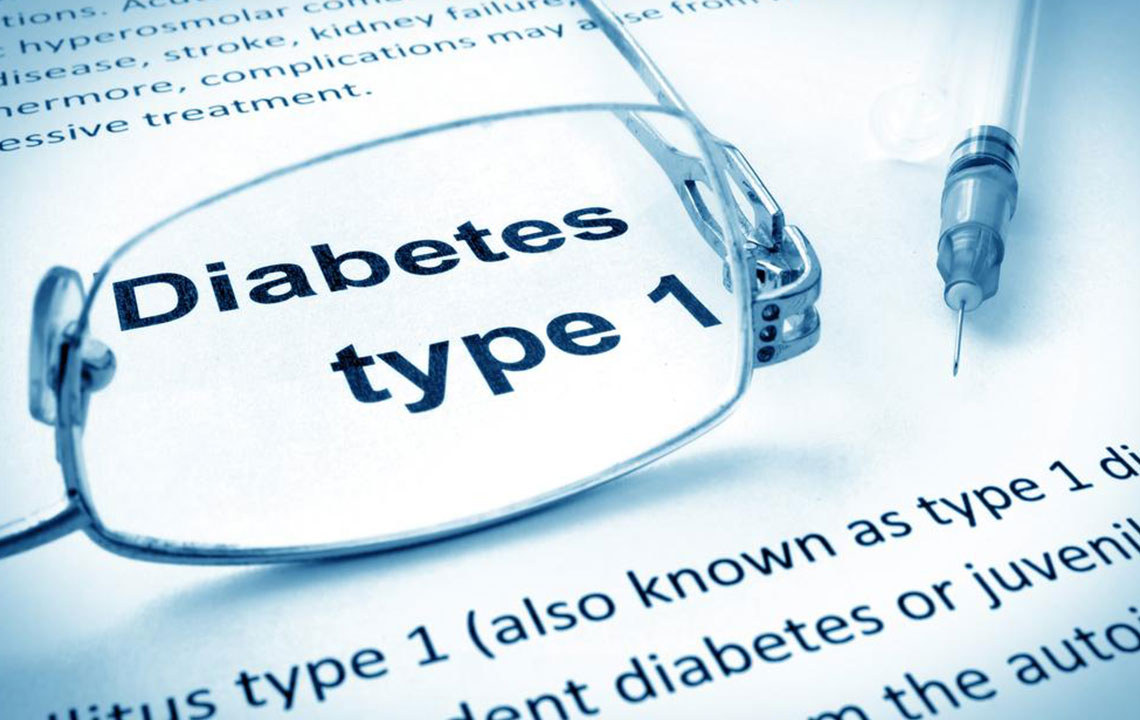All You Need To Know About Type 1 Diabetes
Type 1 diabetes is a condition where the immune system destroys insulin-making beta cells in the pancreas. It is a chronic disease which renders the body unable to produce insulin. It can develop at any age but is common in children. There are high chances of adults to develop type 1 diabetes as they grow old.
Why Is Insulin Important?
Insulin is a hormone that lets your body utilize the glucose in the bloodstream to give you energy. The glucose is obtained from the food you eat. In type 1 diabetes, the body can’t produce insulin. This results in glucose being accumulated in your blood.

What Are The Causes Of Type 1 diabetes?
The main cause of this condition is still unknown. But researchers believe it is an autoimmune disease where the body’s own cells attack the pancreas. The reason why cells attack is also unknown. Your family genes also play a role in determining whether you are prone to this disease. Type 1 diabetes can also occur with other autoimmune diseases like Vitiligo and Grave’s disease.
Some common symptoms of type 1 diabetes are;
- Frequent thirst
- Dryness of mouth
- Nausea and vomiting
- Increased hunger even after eating
- Urge to urinate often
- Increased tiredness
- Severe weight loss
- Blurred vision
- Frequent skin, urinary tract and vaginal infections
What Should Be Done To Prevent Type 1 Diabetes?
Unfortunately, there’s no prevention of Type 1 Diabetes. But you can delay the progression of the condition by keeping your blood sugar level within a certain level. People having a family history of type 1 diabetes can get regular medical checkups to ensure that they detect it early on. There is a possibility to slow, stop or reverse the condition if it is detected early.
People suffering from high blood and high cholesterol along with type 1 diabetes, will have to treat those conditions first. Quitting smoking will also help in reducing complications. Also, it is recommended to get a regular health check-up done to rule out any other underlying health issues or complications. Those can aggravate complications related to diabetes.
Regular vaccines such as flu, pneumococcal and hepatitis B should be administered since it can be difficult to manage blood sugar. Also, additional immunizations should be taken if you’re prone to this.
How Is Type 1 Diabetes Treated?
Two main ways to treat this are by taking regular shots of insulin, proper exercise, and a closely monitored diet.
- Insulin Shots
A daily dose of insulin is recommended for people suffering from type 1 diabetes. It’s usually given in the form of an injection. An insulin pump is also available for those who don’t like getting injections. This pump can be used to inject insulin through the skin without needles. It can help with high or low blood sugar. The amount of insulin needed can vary person to person. The dose is prescribed by your doctor. Ensure that you measure your blood sugar level at regular intervals to know how much insulin needed your body needs. Initially, your doctor may recommend two injections, both of different types of insulin a day. Later, he may recommend up to 3-4 shots per day. - Exercise and Diet
It’s recommended that you eat healthy and regular meals to ensure your blood sugar stays in check. Consult a nutrition specialist or dietician to map out a healthy eating plan. Also, ask your doctor to recommend moderate exercises that will help lower sugar levels. The amount of insulin to be taken can be adjusted according to the intensity of your exercise.
People suffering from type 1 diabetes should try and keep the condition under control. Otherwise, it can lead to a host of other problems.
- Nephropathy or Kidney Damage
Approximately 20%- 30% people are prone to this. It can occur 15- 20 years after being affected by diabetes. This can further lead to failure of the kidneys and even heart disease. - Nerve Damage
Nerve damage can cause the nerves and arteries to harden, causing loss of sensation, especially in your feet. This also makes it difficult for injuries and wounds to heal and can result in loss of limbs. Other problems associated with nerve damage such as vomiting, diarrhea, and nausea can also surface. - Retinopathy
This, is an eye problem that can affect around 80% of adults who’ve suffered from type 1 diabetes for over 15 years.
In conclusion, go for regular health checkups and keep your blood sugar level, blood pressure, and cholesterol within acceptable limits. Make lifestyle changes and there are chances that you can lead a healthy life. If you suspect that you may have it, it’s best to have it diagnosed early on, since there are chances to reverse the condition completely.

